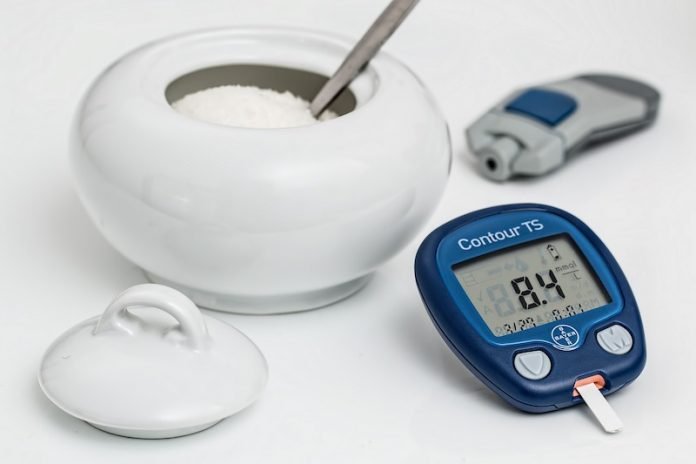
In a new study, researchers found that aggressive methods for blood sugar control are not better than standard approaches.
The research was conducted by a team from the National Institute of Neurological Disorders and Stroke (NINDS).
Hyperglycemia, or high levels of glucose, is common in patients with ischemic stroke and is linked to worse outcomes compared to normal blood sugar levels.
Previous research has shown an effect of high blood sugar in worsening stroke injury.
It is unknown whether intensive glucose management after acute ischemic stroke leads to better outcomes.
The new Stroke Hyperglycemia Insulin Network Effort (SHINE) study compared two commonly used strategies for glucose control in ischemic stroke patients.
More than 1100 patients underwent intensive or standard glucose management.
The intensive method required the use of intravenous delivery of insulin to bring blood sugar levels down to 80-130 mg/dL.
The standard glucose control using insulin shots, which aimed to get glucose below 180 mg/dL, for up to 72 hours.
After 90 days, the patients were evaluated for outcomes, including disability, neurological function, and quality of life.
The team found that the two treatments were equally effective at helping the patients recover from their strokes.
After 90 days, about 20% of the patients showed good health outcomes regardless of whether they were given intensive or standard treatment.
The study shows strong clinical evidence that aggressive blood sugar lowering does not improve patient outcome.
In fact, intense glucose therapy increased the risk of very low blood glucose (hypoglycemia) and required a higher level of care compared to standard treatment.
The team believes their new finding can benefit stroke patients worldwide.
More research is needed to better understand the role of glucose in stroke recovery and to find other treatments to improve health outcomes in hyperglycemic stroke patients.
The lead author of the study is Karen C. Johnston, M.D., professor of neurology.
The study is published in JAMA.
Copyright © 2019 Knowridge Science Report. All rights reserved.



